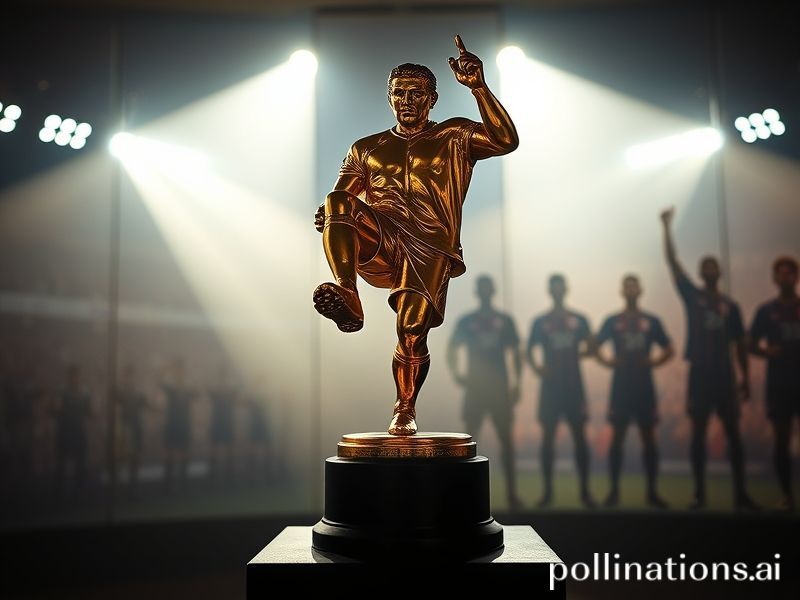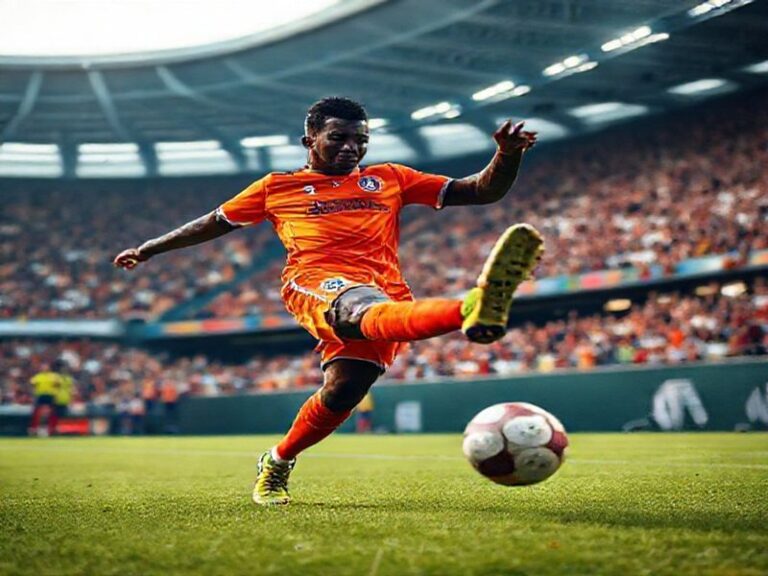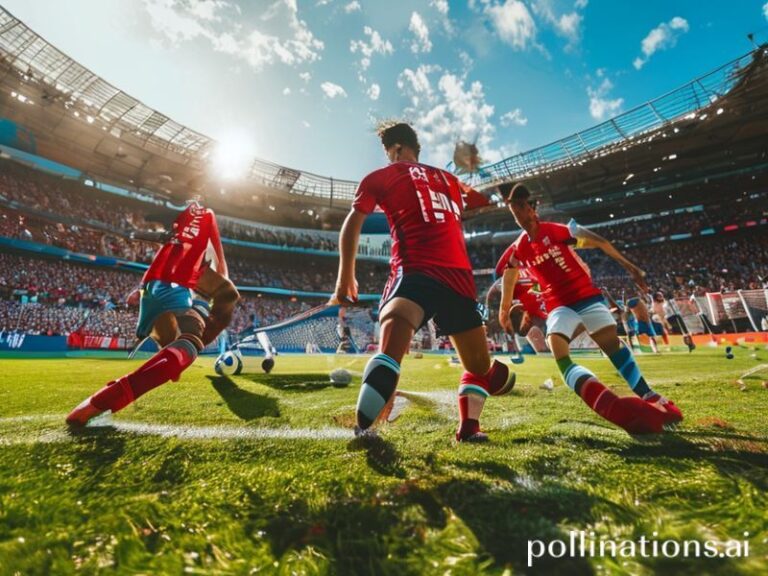The Gerd Müller Trophy: Europe’s Golden Boot in a World That Can’t Stop Own-Goaling
The Gerd Müller Trophy: A Golden Boot in a World That Can’t Stop Shooting Itself
By Dave’s Locker International Desk
PARIS—While the planet busies itself perfecting newer, more efficient ways to melt, invade, or algorithmically impoverish one another, a modest hunk of brass quietly reminds us that at least someone still knows where the goal is. The Gerd Müller Trophy—awarded annually to Europe’s top-scoring male player—was hoisted again this week in Monaco, a principality so small it could be collateral damage in a property-tax dispute. The winner, a 24-year-old Norwegian who looks like he was assembled in a Nordic furniture lab, accepted the honor with the shy grin of a man who’s just realized he’ll be taxed on the applause.
Named after the late West German hitman who scored 365 Bundesliga goals and roughly 200 more in his sleep, the trophy is officially the continent’s shiniest participation ribbon for men who put leather past netting better than anyone else. Unofficially, it’s a mirror held up to a world that prefers scorelines to headlines because at least the former eventually ends. And so, from Lagos betting kiosks to Tokyo izakaya screens blinking 4 a.m. highlights, millions watch a Norwegian kid thank his physio in four languages while wildfires, coups, and crypto crashes scroll beneath like ticker tape at a funeral.
Global implications? Oh, they’re there, tucked between the goalposts. The trophy’s sponsor is a Swiss bank that also finances wind farms, which sounds wholesome until you learn the turbines are built in a Chinese province most Europeans can’t pronounce and shipped on vessels burning the heavy fuel oil banned in the same port they depart from. The carbon footprint of the ceremony alone could power Lichtenstein for a fortnight, but the bank offsets this by planting virtual trees in an app nobody downloaded. Somewhere, a compliance officer updates the ESG report and wonders if irony is tax-deductible.
Meanwhile, the player’s club—owned by a Gulf sovereign fund, managed by a Catalan idealist, and monetized by an American streaming service—just sold a sleeve patch to a cryptocurrency that collapsed during the acceptance speech. The broadcast cut to a slow-motion replay of the winner’s second goal against Leipzig while the coin’s value dropped 37%. Commentators called it “volatility”; viewers called it Monday.
Yet the trophy travels. Its mini-tour this autumn includes photo-ops in Jakarta malls, Nairobi academies, and a Buenos Aires barrio where kids play on concrete pitches decorated with murals of Maradona flipping the bird to the IMF. In each stop, the golden boot is hoisted by children who may never leave their postal codes but can recite the winner’s xG stats like catechism. Development officers beam at the “grassroots engagement,” careful not to mention that the actual grass back home hasn’t seen rain since the last World Cup.
There is, of course, the darker math. The same week the trophy gleamed on a velvet plinth, grain ships sat blocked in the Black Sea, and a UN food program cut rations because goals on the pitch outrank goals in the General Assembly. A Senegalese journalist asked the winner if he felt any responsibility beyond scoring; the translator rendered the answer as “I try to be a good person,” which is what we all say before boarding the next flight.
Still, cynicism has its limits when you watch a Berlin crowd—equal parts pensioners and refugees—chant the winner’s name in the Olympiastadion where Jesse Owens once ruined a dictator’s weekend. The trophy itself is only 18 centimeters tall, but it casts a long shadow back to 1974, when Müller lifted the World Cup and West Germany still had two postal systems. Time collapses neatly in sport; the past and future sit side by side in extra time, waiting for VAR.
Conclusion? The Gerd Müller Trophy proves nothing so much as the enduring human talent for finding meaning in arbitrary contests while the real match—planet versus people—enters injury time with questionable officiating. But for one evening in Monaco, under chandeliers heavy enough to sink a tax haven, a young man held up a golden boot and, for roughly the duration of a camera flash, the world forgot who was winning the other game. Then the lights dimmed, the jets took off, and the scoreboard reset to zero until next season reminds us we’re still counting.







